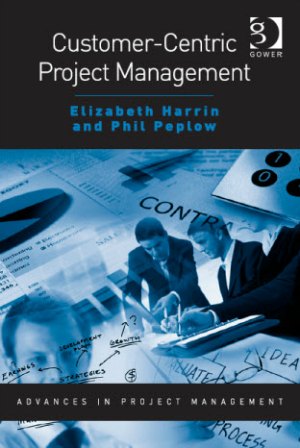Which Phase of the Lessons Learned Process Consists of a Formal Review and Analysis of the Raw Data
In my experience, well-nigh project managers feel that they could 'exercise' lessons learned better. We all know that capturing lessons learned is an essential part of making sure that future projects go well, only capturing and sharing them seems to be something that we don't feel nosotros practice especially effectively.
And information technology isn't surprising – managing lessons learned is hard to practise well on a project.
In this article:
- What are Lessons Learned?
- The Lessons Learned Procedure
- How to Capture Lessons Learned
- one. Mail service-project reviews
- ii. Team meetings
- 3. Dejeuner and Learn sessions
- 4. I-to-ane meetings
- 5. Wikis/Software
- Lessons Learned Templates
- Projection Lessons Learned Examples
- Using Lessons Learned on New Projects
- Improve as you go
- And improve for the future
What are Lessons Learned?
Lessons learned help you lot manage a project more than finer, because you lot larn from what happened in the past. The idea is that you don't make the same mistakes once again.
The Lessons Learned Procedure
The lessons learned procedure is easier than you might retrieve.
- Talk about what worked and what didn't work.
- Share that information with the team.
- Human action on the information.
That last office is really important, and I'll come up on to that in a minute.
How to Capture Lessons Learned
So how can you capture and share lessons learned? In that location are plenty of different ways to spread what y'all have learned from your project around the PMO, projection managers and teams.
Hither are 5 ways that yous can try.
i. Mail service-project reviews
Your project does have a scheduled post-project review, doesn't it? If not, get one on your projection plan at present! Then talk to your PMO nigh a standard format for post-projection reviews as you'll find that if everyone carries out their lessons learned meetings in a similar fashion information technology will be easier to collate, share and search the results.
The post-project review is a formal opportunity to review what went well and what didn't. The people in the meeting will benefit from an open and honest give-and-take about the projection and can carry this learning through to their next projects.
You can also share the output with other projection teams.
2. Team meetings
You don't have to await until your mail-project review in club to share lessons learned. Make information technology a continuing detail on the agenda for your project team meetings.
Ask people to share what they have learned that week. Write it downward. Collate all the responses on an ongoing footing.
There might not be something worth discussing every week merely the act of request creates an surround where it is expected that lessons learned will be shared.
Information technology's this culture that promotes organizational learning and volition encourage team members and other project managers to talk openly about what they didn't practice well and what could exist washed amend adjacent time.
3. Dejeuner and Learn sessions
The previous two suggestions are merely really useful for people on the project team. A dejeuner and learn session is where you host an open up meeting to talk over a particular topic and anyone tin can come along to listen.
The 'lunch' part is because unremarkably the meeting is held over a lunchtime and people either bring their ain food or dejeuner is provided. When I organized lunch and larn sessions we either had pizza or a catered sandwich lunch, or people brought their own sandwiches.
This is a adept style to accomplish a wider audition with your lessons learned as you tin can invite members of other project teams or the wider PMO community to come up along and hear what worked on your project.
4. One-to-one meetings
When you have one-to-one meetings with your team members, your line director or other project stakeholders, have the opportunity to enquire them for their lessons learned. Yous may find that in this surroundings they are more prepared to share their feedback with you and y'all could pick up some really useful tips.
This is especially the instance when things didn't go then well! You'll probably discover that people are very happy to hash out project successes in a group setting but might be a flake more reticent about confessing to things that went badly on the project.
You lot are more than likely to find out about these in a more than individual setting where people aren't going to worry about others overhearing their remarks.
five. Wikis/Software
If your PMO doesn't currently have a wiki for lessons learned, suggest that they set one up. They are easy to create and anyone tin can add data to them, then yous can keep the wiki topped up with new lessons learned equally you become through your project. Y'all can too add copies of things like the minutes from your mail service-project review.
The wiki and then becomes a really useful source of historical project lessons. When y'all start work on your next projection you tin can quickly review the relevant topics so that y'all have the nearly upwards-to-date information nearly working practices and what fabricated other projects successful (or non).
Read adjacent: Using software to find the best lessons learned for your next project
Lessons Learned Templates
Get a template for a lessons learned meeting agenda.
Get a template for lessons learned meeting minutes.
Project Lessons Learned Examples
There are some great examples of projection management lessons learned databases out in that location. Endeavour these:
NASA'due south project lessons searchable database
Major Projects Knowledge Hub
Reports from the National Audit Office often include lessons learned.
And the Government Accountability Office does the aforementioned function in the U.s..
Using Lessons Learned on New Projects
Regardless of how you find out virtually lessons learned and how they are shared, the almost important thing is that you lot act on them next fourth dimension! There's not much point putting in place formal post-project reviews, a wiki or whatsoever other method of sharing lessons learned if yous never refer to what has been captured and you (and other projection managers) end up making the aforementioned mistakes over again.
You had a project lessons learned meeting. Yous captured lots of ideas for improvements and noted down all the things that didn't work so well. Genius. Your hereafter projects will be so much better for that ii-hour session. Or will they?
In reality, they probably won't. You'll forget. Your team will forget. You'll be likewise busy to implement the lessons. Your clients won't pay you for the hours information technology takes to find those notes and put them into do. The primal person on the team moves to a new role. You tin can't notice the notes because they've been archived.
And still, those lessons captured are and so relevant for so many parts of time to come projects, from helping to create a rough social club of magnitude judge, to agreement which departments are like shooting fish in a barrel to piece of work with and which are likely to need a little bit more stakeholder engagement.
So what can yous do differently?
Improve equally you lot become
Implement these improvements as yous go. In that location'south no need to wait until your adjacent project to do things differently. You tin do them differently today.
Update those template documents, change the fashion you communicate with stakeholders, tweak your reports until they are perfect for your sponsor, meliorate that process so that information technology works kickoff fourth dimension, every fourth dimension.
Process change is hard, specially when yous are busy doing the bodily projection. But if you lot don't do it today, you probably won't accept the inclination to put those lessons into practice in the future.
When yous are setting up a new projection and working through the initiation phase it always seems more than daunting to work in a new way. The improvements yous make today to your electric current project will seem smaller in comparison.
And improve for the future
Non all lessons result in the type of information that generates a process change or other change that tin can exist put into do now. Lessons near procurement or initiation may not exist able to exist used until the next project goes through those phases.
Create a 'review lessons' job as part of first step of every project initiation process. This prompts y'all to go back through that wiki or lessons learned database and option out anything that might be relevant.
You lot can also employ this every bit a reminder to talk to your onetime project squad about how they would practice it differently. The PMO, if yous accept one, is some other source of data well-nigh how y'all could kickoff this project differently and more successfully.
You can also ask the new project'southward sponsor or customer about what they accept washed in the by and how they would like to run into it improved this time round.
Commencement capturing their input early and piece of work towards a project that has a culture of continuous comeback from day 1, starting with a review of the organizational knowledge captured on other projects.

It takes time to embed lessons learned thinking (or customer-centricity, every bit I call it) but it's worth it.
Projection success rates should ameliorate and you should feel more confident that y'all are delivering a quality service to your stakeholders.
All these ideas, likewise equally the concept of continuous comeback through lessons learned capture, are discussed in my book, Customer-Centric Project Management.
Pin for later on reading:

robinsonmitte1991.blogspot.com
Source: https://rebelsguidetopm.com/lessons-learned-in-project-management/
0 Response to "Which Phase of the Lessons Learned Process Consists of a Formal Review and Analysis of the Raw Data"
Post a Comment